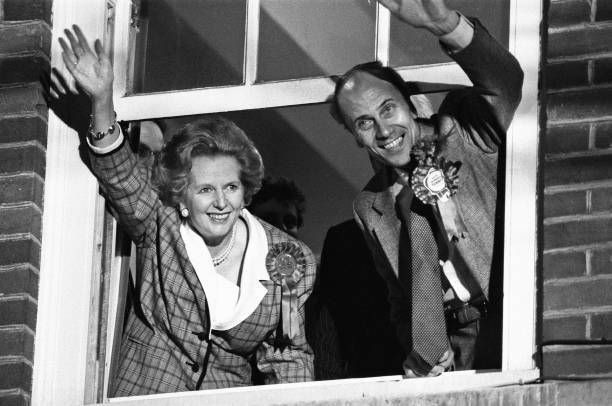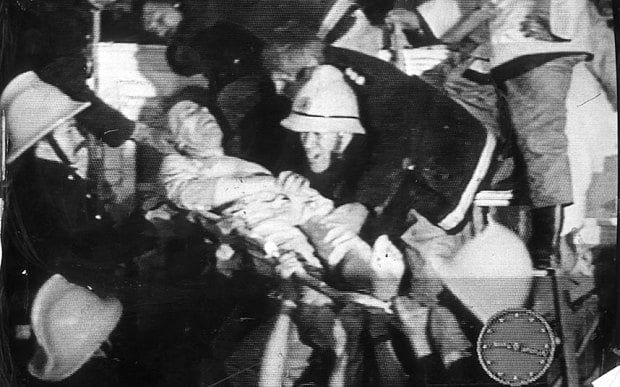
Lord Norman Tebbit, a central architect of 1980s Conservatism and one of Margaret Thatcher’s most trusted lieutenants, has died aged 94. His legacy is one of grit, unapologetic belief in Britain, and fierce resistance to the socialist drift that plagued postwar politics. Though imperfect, as all serious reformers (and Reformers) are, Tebbit helped haul Britain out of the mire of union strangleholds, economic decay, and collectivist complacency.
Born in 1931 in Ponders End, north London, Tebbit embodied the working-class conservatism that rejected both dependency and condescension. He served as a fighter pilot in the RAF and later flew for BOAC, before entering Parliament in 1970 as the MP for Epping, then Chingford. Unlike most politicians, Tebbit never traded in platitudes. He was, in his own words, “not one for vague, woolly phrases,” and his clarity of thought and speech won him fierce loyalty on the Right, and of course, deep hostility from the Left.
Tebbit rose through the ranks alongside Margaret Thatcher, becoming a key enforcer of her economic programme. As Employment Secretary (1981–83), he spearheaded legislation that began the long-overdue dismantling of trade union overreach. His reforms, including measures against the closed shop and secondary picketing, rebalanced industrial power and paved the way for a freer, more dynamic economy. Critics howled. The media mocked him. But the country, slowly, began to recover, and then thrive.
His most quoted remark—urging people to “get on their bike” in search of work, was portrayed as callousness, but it captured a broader ethos: that self-reliance, not state dependency, should be the backbone of a civilised society.
As Trade and Industry Secretary and later Party Chairman, Tebbit helped secure Thatcher’s third election victory in 1987. He was the party’s backbone, organised, unflinching and unafraid of confrontation. His style was blunt, but his instincts were patriotic, and his loyalty to Thatcher total.

The cowardly IRA 1984 Brighton bombing nearly ended his life. He was pulled from the rubble, but his wife Margaret was left permanently disabled. Tebbit returned to politics with remarkable stoicism, but the personal cost was immense. He left the Cabinet in 1987 to care for his wife, in a fine example of his quiet integrity beneath the steel.
Yet for all that Tebbit and Thatcher achieved—and they achieved much—the Thatcher revolution was incomplete. The civil service, quangos, and public sector unions remained largely untouched. The deep bureaucratic state, with its reflexive disdain for accountability and its cultural Leftism, survived the 1980s intact. The administrative elite that stifles reform and evades democratic control was never seriously challenged. On this front, even Tebbit admitted in later years, “we were too trusting of the machine.”
In the House of Lords, Lord Tebbit remained active and sharp into his 80s. He was a principled Eurosceptic before it was fashionable, opposing the Maastricht Treaty and warning of the EU’s ambitions long before most in Westminster dared question it. He supported Brexit not out of nostalgia but from a belief in nationhood and democratic sovereignty. On cultural matters, his views on family, immigration, and loyalty were those of the bulk of the British people and rooted in a consistent worldview: that Britain should remain British. Naturally, the Left and the MSM hated him for it.
His 1990 “cricket test” comment that the success or otherwise of integration could be judged by which team immigrants supported was derided and smeared as, inevitably, racist, but it spoke to an anxiety about divided loyalties that many Britons quietly shared. And we now know that most immigrants support Pakistan over England, in cricket and most other ways.
Norman Tebbit is survived by his three children. His wife Margaret died in 2020 after decades of care and devotion from her husband.
In the end, Norman Tebbit was not a man of half-measures. He helped stop Britain sliding fully into socialism. He restored pride in enterprise, responsibility, and national interest. But even he could not finish the job. The deep state, the cultural rot in our institutions, and the bloated public sector remain, their roots untouched, fatter, smugger and more arrogant than ever.
Still, for a generation of conservatives and for a country that desperately needed a wake-up call, Tebbit’s was the voice that rang clear: unapologetic, courageous, and resolute. May his memory remind us of, and fortify us for, the battles still to come.